Slim Jims & Cats: A Dangerous Snack Attack? Vet Explains Why They're Unsafe
- 14 Apr 2025 11:01
The crinkle of a wrapper, the savory smell of processed meat – it's easy to see why a Slim Jim might catch your curious cat's attention. As you enjoy this convenient, spicy snack, you might be tempted to share a tiny piece with your feline friend who's watching intently. This leads to a common but critical question for pet owners: can cats eat Slim Jims? While sharing snacks can feel like bonding, processed human foods like Slim Jims are firmly in the "danger zone" for cats.
The answer is a resounding **NO**. Slim Jims are packed with ingredients that are not only nutritionally inappropriate for cats but also potentially toxic and harmful. As obligate carnivores, cats have highly specific dietary needs that are drastically different from humans. Understanding why these popular meat sticks are unsafe is crucial for protecting your cat's health. This comprehensive guide, reviewed for veterinary accuracy and adhering to E-E-A-T principles (Experience, Expertise, Authoritativeness, Trustworthiness), will break down the hazardous ingredients in Slim Jims, explain the associated health risks, and outline why they should never be offered to your feline companion.

What ARE Slim Jims, Anyway? Ingredient Reality Check
To understand the risks, let's look at what typically goes into a Slim Jim (ingredients can vary slightly by flavor):
Meat Products: Often a combination of beef, pork, and mechanically separated chicken. While meat is the base, the quality and processing are far from ideal for cats.
Salt: A major ingredient, used heavily for preservation and flavor. This is a primary concern for feline safety.
Corn Syrup / Sugar: Added for flavor and texture; completely unnecessary and unhealthy for cats.
Spices & Flavorings: A proprietary blend that often includes ingredients like paprika, dextrose, and crucially, may contain hidden **garlic powder or onion powder**, which are highly toxic to cats.
Sodium Nitrite: A preservative used in cured meats. While used in regulated amounts for human food, its long-term effects on pets are debated, and high intake is undesirable.
Hydrolyzed Soy Protein / Soy Flour: Fillers and flavor enhancers; soy can be an allergen for some cats.
Other Additives: May include yeast extract, flavor enhancers, and preservatives.
This ingredient list, designed for human shelf stability and taste, reads like a catalogue of things unsuitable or dangerous for a cat's specialized digestive system and metabolism.
Obligate Carnivores vs. Processed Meat Sticks: A Biological Clash
Cats are **obligate carnivores**. This biological fact dictates everything about their nutritional needs:
High Animal Protein Needs:** They require diets rich in high-quality animal protein containing specific essential amino acids like taurine. While Slim Jims contain meat, the overall quality and balance are questionable, and vital nutrients might be lacking or degraded by processing.
Specific Fat Requirements:** They need animal fats for energy and essential fatty acids. The fat profile in processed snacks isn't optimized for them and can be excessively high.
Intolerance to High Sodium:** Cats are highly sensitive to salt intake compared to humans. Their kidneys are not designed to handle high sodium loads.
Sensitivity to Additives:** Their metabolic pathways differ from humans, making them more vulnerable to preservatives, spices, and artificial ingredients. They lack efficient detoxification pathways for many compounds.
No Need for Sugars/Carbs:** Ingredients like corn syrup and flour offer no nutritional value and can disrupt their digestive and metabolic systems.
Feeding a Slim Jim to a cat ignores these fundamental biological requirements and sensitivities, introducing harmful substances their bodies cannot properly handle.
The Blunt Answer: Why Cats Absolutely CANNOT Eat Slim Jims
Let there be no ambiguity: **Slim Jims are unsafe and potentially toxic for cats.** Offering even a small piece is strongly discouraged due to multiple severe health risks:
EXTREME Sodium Content (Salt Toxicity Risk): This is arguably the most immediate and significant danger.
Toxic Spices (Garlic/Onion Powder Risk): Many processed meat snacks contain hidden Allium ingredients lethal to cats.
High Fat Content: Can lead to severe gastrointestinal upset and pancreatitis.
Harmful Preservatives (Sodium Nitrite): Undesirable chemical additives.
Sugars and Carbohydrates: Nutritionally inappropriate and unhealthy.
Poor Nutritional Value: Offers "junk food" calories with none of the essential nutrients cats need.
Processed Meat Concerns: General issues with highly processed meat products not suitable for pets.
Slim Jims are a dangerous combination of salt, fat, spices, and chemicals wrapped in processed meat – a concoction completely unsuitable for feline consumption.
Deep Dive into the Dangers: Ingredient Risks Explained
Understanding the specific impact of each harmful component solidifies why Slim Jims are off-limits:
1. Sodium Toxicity (Hypernatremia) - **CRITICAL DANGER**
Slim Jims are notoriously high in salt (sodium chloride), used for flavor and preservation.
Feline Vulnerability:** Cats are far more sensitive to sodium than humans. Their kidneys struggle to excrete large salt loads.
How it Harms:** Excess salt disrupts the body's fluid balance, drawing water out of cells and increasing blood pressure. It severely strains the kidneys and heart.
Symptoms of Salt Poisoning in Cats:** Can occur rapidly after ingesting high-salt items. Watch for:
Excessive thirst and urination (early signs)
Vomiting
Diarrhea
Lethargy, weakness
Loss of coordination (ataxia)
Muscle tremors
Seizures
Potential coma and death in severe cases.
Small Amount, Big Risk:** Due to a cat's small body size, consuming even a small portion of a Slim Jim can deliver a dangerously high dose of sodium, potentially leading to severe toxicity, especially in smaller cats or those with underlying health issues.
The extreme sodium level alone makes Slim Jims toxic to cats.
2. Toxic Spices (Garlic & Onion Powder) - **SEVERE RISK**
The exact spice blend in Slim Jims is proprietary, but processed meat snacks very commonly contain garlic powder and/or onion powder for flavor. These are **highly toxic** to cats.
Allium Toxicity:** Garlic and onions belong to the Allium family. They contain compounds (disulfides, thiosulphates) that damage feline red blood cells, leading to Heinz body formation and potentially life-threatening hemolytic anemia.
Hidden Danger:** These ingredients might not be explicitly listed as "garlic" or "onion" but included under "spices" or "flavorings." Assume they might be present in any savory processed human snack unless confirmed otherwise.
Symptoms:** Anemia symptoms (pale gums, weakness, lethargy, rapid breathing) may take days to develop after ingestion. Acute GI upset can also occur.
The potential presence of these toxic spices adds another layer of severe risk.
3. High Fat Content
Slim Jims contain significant amounts of fat, often from less desirable sources.
Digestive Overload:** High fat can easily overwhelm a cat's digestive system, causing immediate vomiting, diarrhea, and abdominal pain.
Pancreatitis Trigger:** Fat is a major trigger for pancreatitis in cats, a painful and potentially fatal condition requiring intensive veterinary care. The risk increases with fatty treats like Slim Jims.
4. Sodium Nitrite and Other Preservatives
Sodium nitrite is used to cure meat, prevent bacterial growth (like *Clostridium botulinum*), and give products their characteristic color and flavor.
Potential Concerns:** While used in regulated amounts for humans, concerns exist about nitrites forming nitrosamines (carcinogenic compounds) under certain conditions. Long-term effects of these preservatives on pets are not fully understood, and minimizing exposure is generally advised. High doses can interfere with oxygen transport in the blood (methemoglobinemia).
5. Sugars (Corn Syrup) and Carbohydrates
These add empty calories and are nutritionally inappropriate.
Digestive Upset:** Can contribute to diarrhea and gas.
Health Risks:** Contribute to obesity and potentially disrupt blood sugar control, increasing diabetes risk over time.
6. Poor Nutritional Value
Slim Jims offer negligible amounts of the essential nutrients cats need (like taurine, specific vitamins) while delivering harmful ingredients. They are the feline equivalent of dangerous junk food.
"What Happens If My Cat Eats a Slim Jim?" (Emergency Protocol)
Accidental ingestion requires immediate action due to the high risk of toxicity:
1. Prevent Further Consumption: Immediately remove the Slim Jim and any wrapper pieces from your cat's reach. 2. Estimate Amount Eaten: Try to gauge how much was consumed (a tiny nibble vs. a significant portion). Note the time. 3. Contact Your Veterinarian or Emergency Animal Clinic IMMEDIATELY: This is critical due to the high likelihood of toxic ingredients (salt, potential onion/garlic). **Do not wait for symptoms.** Provide: * Your cat's weight. * Estimated amount eaten. * Time of ingestion. * Any known ingredients if you have the wrapper. 4. DO NOT Induce Vomiting: Unless specifically instructed by your vet. Treatment for salt or onion/garlic toxicity focuses on decontamination (if safe and timely) and intensive supportive care. 5. Follow Veterinary Instructions Carefully: Your vet will assess the risk and may recommend immediate examination, blood tests (to check electrolytes, red blood cells, kidney function), fluid therapy, and other supportive measures depending on the situation and potential toxins involved.
Prompt action is essential when dealing with potential Slim Jim ingestion by cats.
Recognizing Symptoms After Slim Jim Ingestion
Monitor your cat extremely closely for:
Salt Toxicity Signs:** Excessive thirst/urination, vomiting, diarrhea, lethargy, wobbliness, tremors, seizures.
Onion/Garlic Toxicity Signs (may be delayed):** Lethargy, weakness, pale gums, rapid breathing, reddish urine.
GI Upset (Fat/Spices):** Vomiting, diarrhea, abdominal pain, loss of appetite.
Pancreatitis Signs:** Persistent vomiting, severe abdominal pain (hunched), fever, lethargy.
Any of these symptoms require immediate veterinary attention.
Forget the Stick: Offer These Safe Cat Treats Instead
There is zero need to risk your cat's health with Slim Jims. Choose from countless safe and healthy alternatives:
Plain Cooked Meat:** Small pieces of unseasoned chicken, turkey, lean beef, or lamb (boneless).
Commercial Cat Treats:** Select high-quality, meat-first options low in salt and artificial ingredients.
Freeze-Dried Meat Treats:** Excellent single-ingredient protein snacks (chicken, salmon, liver - feed liver sparingly).
Lickable Treats / Meat Tubes:** Highly palatable and great for interaction.
Dental Chews for Cats:** Formulated to help with oral hygiene.
These options satisfy your cat's desire for a treat without the dangers associated with human processed snacks.
Veterinary Consensus: Slim Jims are Definitively Unsafe for Cats
Veterinarians and animal poison control experts are unanimous: Slim Jims and similar processed meat sticks are dangerous for cats and should never be fed to them. The reasons consistently cited are:
Dangerously high sodium content risking salt toxicity.
High likelihood of containing toxic garlic and/or onion powder.
Excessive fat content risking pancreatitis and severe GI upset.
Presence of potentially harmful preservatives like sodium nitrite.
Complete lack of appropriate feline nutrition.
The professional advice is clear: **keep Slim Jims strictly away from cats.**
Slim Jims & Cats: Quick Safety Fact Sheet
| Aspect | Safety Information & Recommendations |
| Can Cats Eat Slim Jims? | **NO.** Highly unsafe and potentially toxic. Strictly avoid. |
| Primary Dangers | **Salt Toxicity (Hypernatremia)**, **Toxic Spices (Onion/Garlic Risk)**, High Fat (Pancreatitis Risk). |
| Harmful Ingredients | Excess Salt, Garlic/Onion Powder (likely), High Fat, Sodium Nitrite, Corn Syrup, Spices. |
| Nutritional Value for Cats | None. Harmful ingredients, empty calories, lacks essential nutrients. |
| Symptoms of Trouble | Vomiting, diarrhea, extreme thirst, tremors, seizures, lethargy, pale gums, rapid breathing, abdominal pain. |
| Action if Eaten | Prevent further access, Assess amount, **Call Vet/Emergency Clinic IMMEDIATELY.** |
| Recommendation | Keep Slim Jims and similar processed human snacks completely away from cats. Offer safe, species-appropriate treats. |
Worried About Accidental Ingestion? PettureX Offers Quick Info!
Understanding the dangers of human foods like Slim Jims is vital. If your cat accidentally eats something potentially toxic, panic can set in. Having access to quick information while you contact your veterinarian (your primary resource for diagnosis and treatment) can be reassuring.
The PettureX App is a helpful tool in such situations:
24/7 AI Vet Consultation: Get immediate AI-powered answers to urgent questions like "What happens if a cat eats a Slim Jim?" or guidance on recognizing symptoms of salt or garlic toxicity.
Image Recognition Technology: Useful for breed identification or assessing visible health issues.
AI-Powered Symptom Checker: Input your cat's symptoms (e.g., vomiting, tremors) for an AI analysis of potential causes, helping you inform your vet effectively.
Extensive Pet Health Database: Quickly access information on toxic substances, common illnesses, and emergency guidelines.
PettureX provides convenient AI-driven support, acting as a valuable resource alongside the essential, personalized care from your veterinarian.
Conclusion: Slim Jims are a Slim Chance for Safety - Keep Them Away from Cats
In conclusion, the answer to "can cats eat Slim Jims?" is an emphatic and unequivocal **NO**. These processed meat sticks are loaded with hazardous ingredients for cats, including dangerously high levels of sodium, potentially toxic spices like garlic and onion powder, excessive fat, harmful preservatives, and unnecessary sugars/carbs. They offer no nutritional value and pose significant risks of salt poisoning, anemia, pancreatitis, and severe gastrointestinal upset.
Protect your feline companion by ensuring Slim Jims and all similar processed human snacks are kept securely out of their reach. Educate everyone in your household about the dangers. If accidental ingestion occurs, contact your veterinarian immediately as a potential emergency. Opt for safe, healthy, species-appropriate treats to show your cat affection without compromising their health.
Related
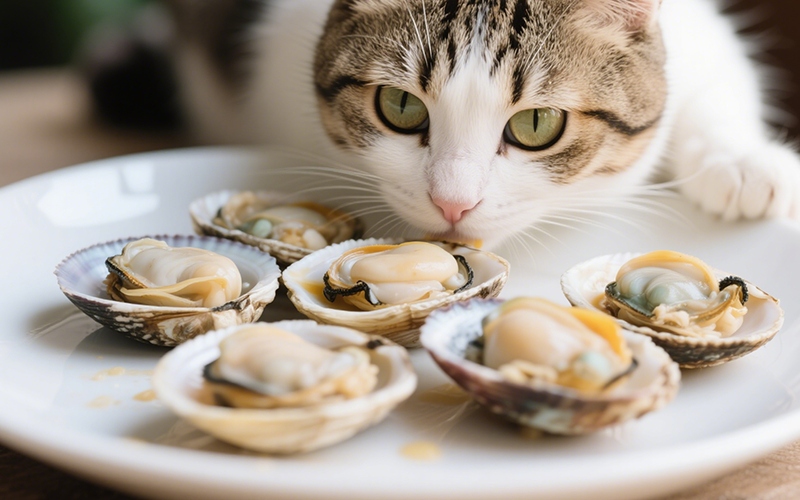
Seafood Surprise: Can Cats Eat Clams Safely? (Vet-Reviewed Risks & Guide)
- 15 Apr 2025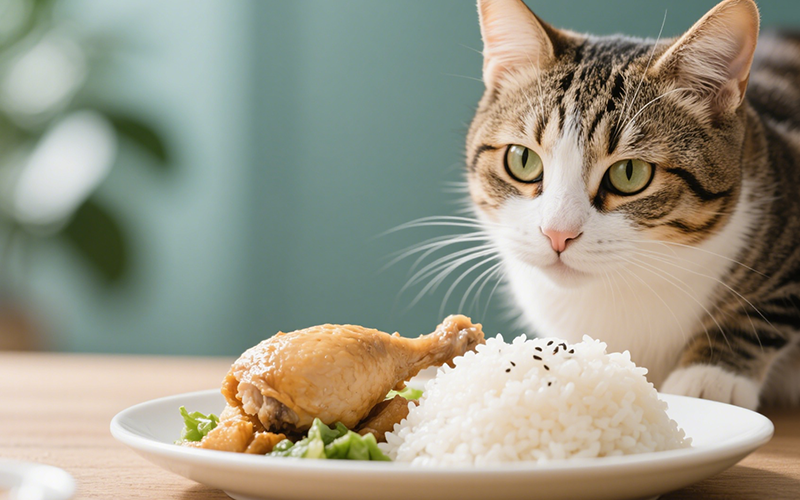
Chicken & Rice for Cats: Safe Treat or Dietary Danger? (Vet-Reviewed Guide)
- 15 Apr 2025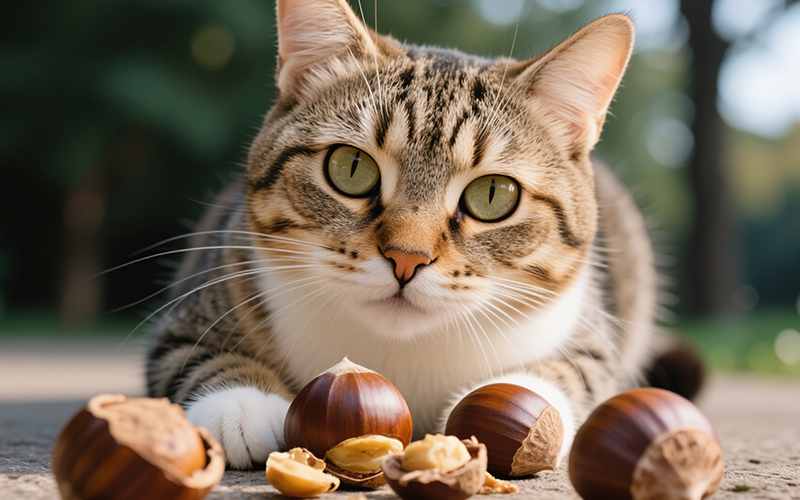
Nutty Concerns: Can Cats Eat Chestnuts Safely? Vet Explains the Risks (True vs. Horse Chestnuts)
- 15 Apr 2025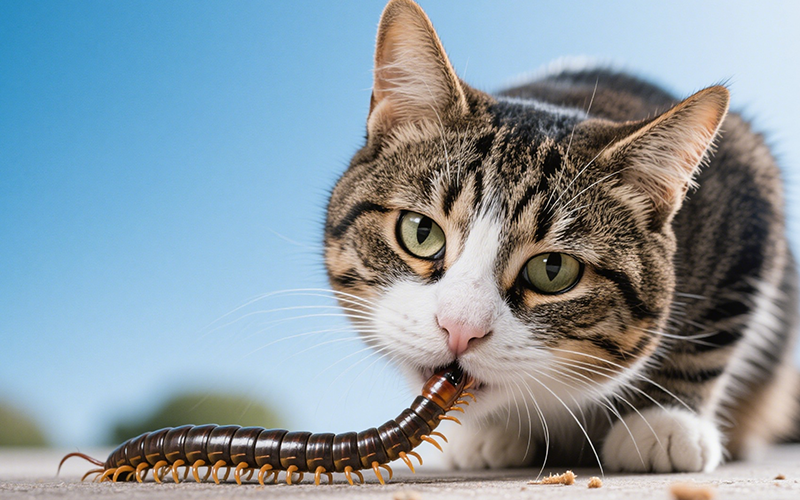
Creepy Crawly Cuisine? Can Cats Eat Centipedes Safely? (Vet-Reviewed Warning)
- 15 Apr 2025
The Gourd Guide: Can Cats Eat Canned Pumpkin Safely? Vet-Reviewed Benefits & Risks
- 15 Apr 2025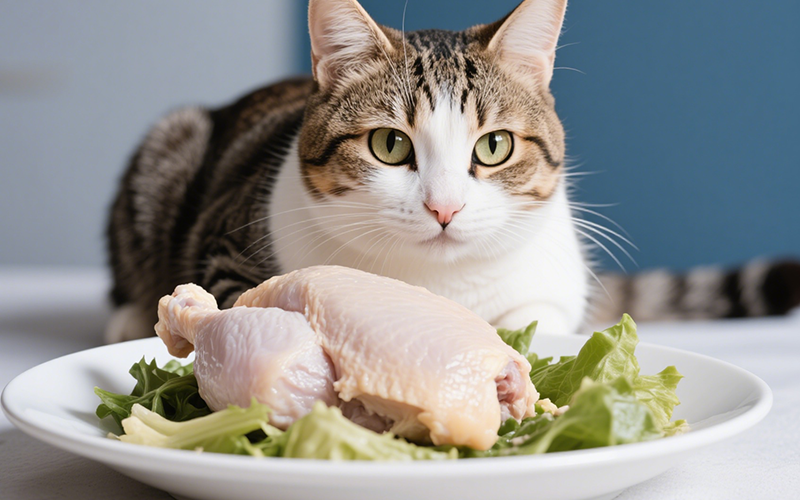
Boiled Chicken for Cats: A Purrfectly Safe Treat or Potential Pitfall? (Vet-Reviewed Guide)
- 15 Apr 2025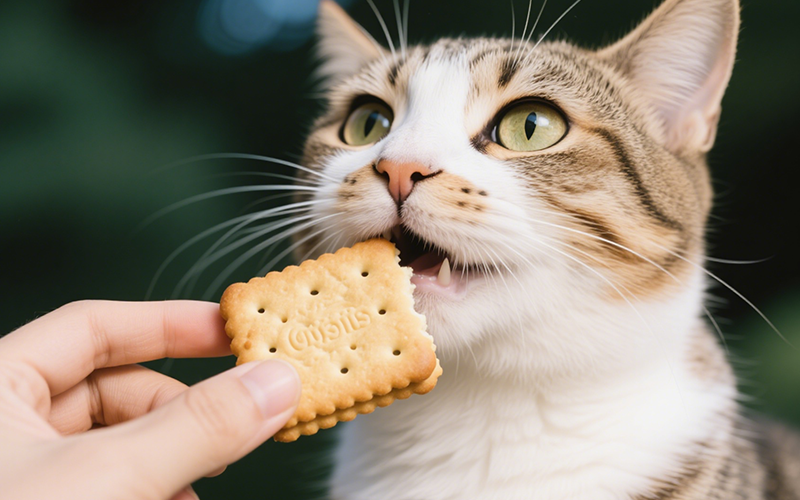
The Crumbly Truth: Can Cats Eat Biscuits Safely? Vet Warns of Hidden Dangers
- 15 Apr 2025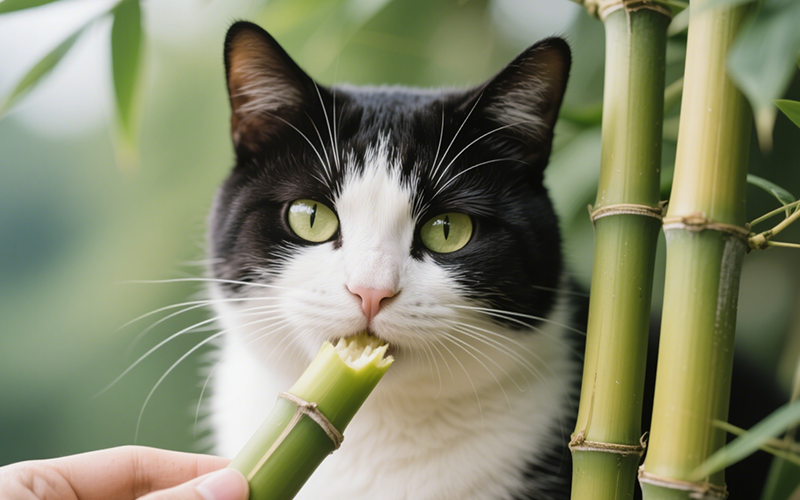
Green Stalks & Curious Cats: Can Cats Eat Bamboo Safely? (Vet-Reviewed Guide)
- 15 Apr 2025
Beef Liver for Cats: Nutrient Powerhouse or Risky Treat? (Vet-Reviewed Safety Guide)
- 15 Apr 2025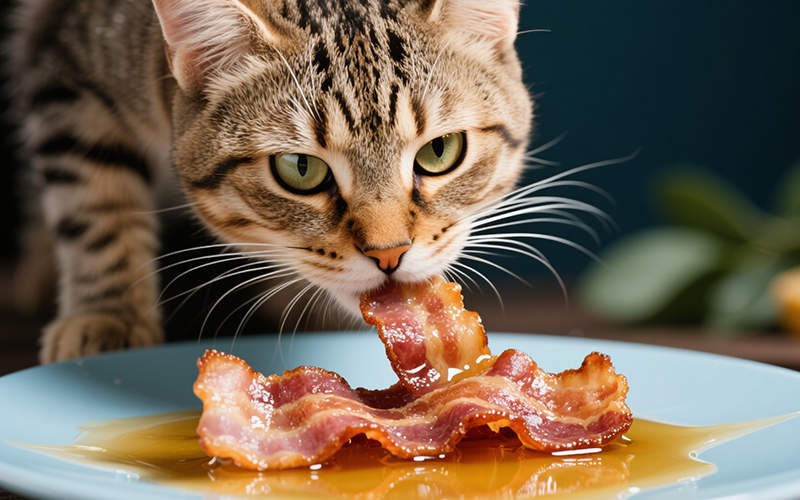
Fat Trap Alert: Can Cats Eat Bacon Grease Safely? (Vet-Reviewed Dangers)
- 15 Apr 2025
